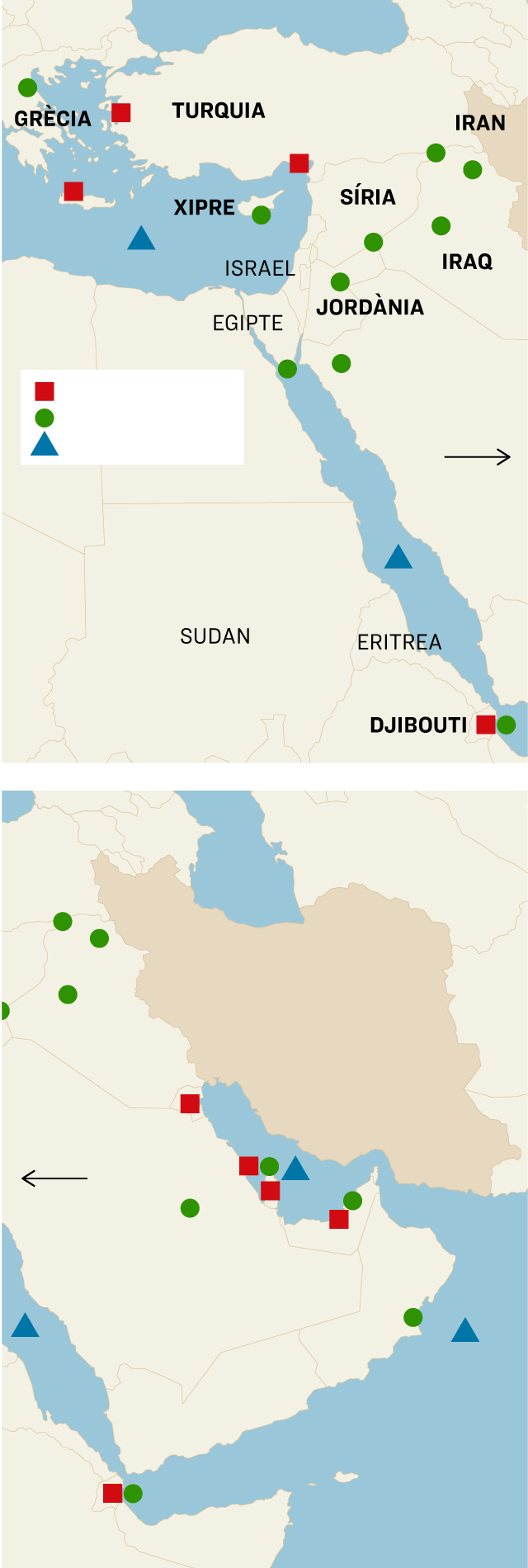Trump's future scenarios and risks in Iran
Washington's attack on Tehran puts the Republican president in an unprecedented and uncertain position.


DamascusIn both his business and political careers, Donald Trump has been known for betting big and taking greater risks than his opponents. However, few of his bets have been as risky. such as ordering a massive bombing of Iranian nuclear facilities. For more than twenty years, all of his predecessors in the White House had considered this option but dismissed it because of the dangers it entailed. However, it is true that Iran had never been in such a weak position.
The most ideological segment of the Trump base, represented by Steve Bannon, has been expressing its opposition to intervention in Iran for days. "It's our battle," Trumpist Congresswoman Marjorie Taylor Greene tweeted hours after the bombing.
Your discomfort is logical, since Trump had been highly critical of the interventionism of his predecessors., an idea that encapsulates his "America First" motto. That's why Trump's bet is based on the expectation that Iran will surrender and, therefore, that he will be able to close the Iranian chapter and focus on the global challenge posed by China, his top priority. However, that's what George W. Bush and Obama thought, but the Middle East seems to have an irresistible pull on the White House.
If Iran doesn't surrender, as Trump wants, the scenario becomes more complicated for the US president's interests. An attack on US bases in the region, or even the closure of the Strait of Hormuz, would force the US military to retaliate, opening a cycle that could result in hitherto unprecedented US casualties. But this isn't the only worrying scenario for the White House resident.
If the Iranian regime doubles down and withdraws from the Nuclear Non-Proliferation Treaty, which would suggest it is indeed pursuing nuclear weapons this time, Washington would be forced to intervene more directly. This could translate into military operations that would include deploying troops on the ground to destroy fuel depots and other nuclear weapons.
This option could also entail significant casualties among US soldiers, as the uranium deposits are expected to be well protected by hundreds or thousands of troops. The operation would not be as easy as killing Bin Laden, who had only a small escort. In 1980, Jimmy Carter already attempted a similar operation to rescue the hostages from the US embassy in Iran, which ended in resounding failure. In fact, some analysts attributed his defeat at the polls a few months later to this ill-fated expedition.
Any of these scenarios, with significant US casualties, could be interpreted as a defeat or humiliation. Trump could be pushed deeper into the Iranian hornets' nest. Initially, the intervention in Vietnam was also supposed to be punctual and limited, and everyone knows how it ended.
The ball is in Tehran's court
Aside from an invasion of Iran—which would be much more complicated than the failed operation in Iraq, given that it is a much larger and more populous country—Trump could choose to arm certain opposition forces, including the Kurdish and Baluchi militias. This possibility—inciting regime change—also presents significant risks. If the Soviet war in Afghanistan resulted in the birth of al-Qaeda, and the Iraq War led to the creation of the Islamic State (ISIS), what monster could a civil war in Iran generate with foreign intervention? Could Russia or China intervene by arming the regime or allied Islamist militias?
In such a scenario, the regime would hardly fall quickly and painlessly. Rather, a very bloody civil war would erupt. And the chaos would not remain confined within Iran's borders, but could radiate instability throughout the region. If this were the case, Trump would be singled out as the main culprit for thousands of unnecessary deaths, just as George W. Bush still carries the burden of the Iraq fiasco.
Now, if Iran surrenders, Trump will be considered by the theorists ofrealpolitikas a brilliant strategist. The same thing happens in football, depending on whether the ball goes in or not, and in this case, the ball is in the court of the Supreme Leader, Ayatollah Khamenei.



